Explain Why the Speed of Sound Changes in Different Mediums.
Because the molecules are closer together they collide more frequently. In general sound travels faster in liquids than in gases and quicker in solids than in liquids.
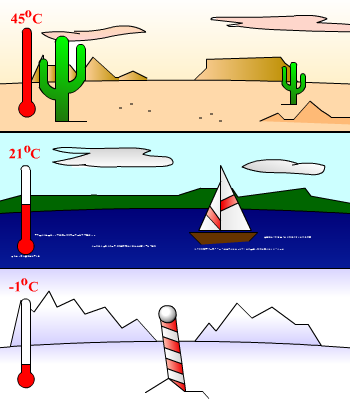
Nondestructive Evaluation Physics Sound
Explain why the speed of sound depends on the temperature of the medium.
. Molecules that have more motion higher temperature can transfer their vibrations more easily. At the very basics lower temperatures will decrease the speed of sound while higher temperatures will increase the speed of sound all other factors being equal. Frequency of the sound wave changes only when there is a change in the source of the wave and is independent of the rigidity of the material medium.
But the speed it can travel through the new medium changes so the distance it moves during one cycle of vibration will also change. Why is this temperature dependence more noticeable in a gas than in a solid or a liquid. Answer 1 of 87.
I understand why speed changes with medium but Im not sure why wavelength not frequency changes. When the air is warmer the sound travels faster and when the air is colder the. The greater the elasticity and the lower the density the faster sound travels in.
There is no reason therefore to presume that the speed of light in a medium is the same as the speed of light in a vacuum. Although sound travels quite fast it is still possible to measure its speed in air. Reflection of the sound.
Instead wavelength changes in different mediums due to a change in speed. The speed of sound depends on both the elasticity and density of the medium. The speed of sound in a medium is determined by a combination of the mediums rigidity or compressibility in gases and its density.
That means in equation 1 ρ ρ decreases while P stays constant and again the speed of sound increases. The speed of sound depends upon the temperature of a medium because temperature determines the speed of the particles. The speed of sound varies greatly depending upon the medium it is traveling through.
For gases the faster the particles the more they bump into each other. The speed of sound is increasing because were making the gas lighter so it oscillates faster. Higher temperatures lower the density of a medium which puts less resistance on the sound waves.
I understand that the length of the tube changes the standing wave in the tube but I ponder why the sound speed increase in the water changes the characteristics of the sound ie. The speed of sound in a medium is determined by a combination of the mediums rigidity or compressibility in gases and its density. Frequency is how quickly the medium is vibrating in cycles per second.
In air the speed of sound is related to air temperature T by v is the same for all frequencies and wavelengths of sound in air. The speed of sound in air is low because air is compressible. The speed of sound depends on the medium and the state of the medium.
Air temperature can change the speed at which sound travels. The speed of the sound depends on the density and the elasticity of the medium through which it travels. The speed of sound is usually fastest in solids where molecules are closest together and slowest in gases where molecules are farthest apart.
How The Speed of Sound Changes In Different Materials. Frequency is independent of the medium whereas velocity of sound waves depends on elasticity and density of the medium. The speed of sound of change for mediums of different densities compressibilities and temperature because different densities give different resistance to the sound.
Because the molecules are farther apart the sound waves dont have as many molecules to bump against and it creates a much slower domino effect on the sound waves. This is a very broad summary as its not only the type of material that makes a difference to the speed. Based on your answer to question 26 explain why sound travels fastest through the particular medium.
The more rigid or less compressible the medium the faster the speed of sound. Table 1 makes it apparent that the speed of sound varies greatly in different media. For example sound waves travel fastest when they are moving through solids and tend to travel a lot slower when moving through gases and liquids.
Temperature affects the speed of sound because temperature can affect the elastic qualities of different mediums. The greater the density of a medium the slower the speed of sound. The speed that sound travels largely depends on the material type.
Note however that the speed of light in vacuum is also invariant meaning the same in all inertial reference frames. In the atom theres a lot of electrons and. The more rigid or less compressible.
The speed of sound in a particular medium depends on temperature and pressure of that medium. A solid can support both longitudinal and transverse sound waves. Now suppose we keep the pressure constant and let the gas expand as its heated.
Up to 24 cash back Air is the least dense of the three mediums. When the elasticity increases and density decreases of a medium sound is allowed to travel faster. A medium however has charged particles that interact with EM radiation.
The more rigid or less compressible the medium the faster the speed of sound. In a fluid because the absence of shear forces sound waves are longitudinal. When a photon enter iside a material like water or air there a lot of atoms and molecules in his path and many things happens when a photon and an atom or molecule crash.
The speed of sound in a medium is determined by a combination of the mediums rigidity or compressibility in gases and its density. To do this you need to measure the time it takes a sound to travel a measured distance. The speed of sound is increasing because were effectively making the gas stiffer.
A medium can be a solid liquid or a gas such as air. In any medium if the temperature increases. One website said it was because of conservation of energy but I read that the energy of a sound wave depends on its amplitude not frequency.
The velocity of sound is different in solids and liquids. However in liquids and solids the particles are close enough together that the difference from temperature is not significant. I understand that sound often travels fastest out of solids liquids and gases in solids less fast in liquids and slowest in gases.
The speed of sound decreases when it passes from solid to gaseous state of a given medium.

Sound The Science Of Waves How They Travel How We Use Them

Speed Of Sound Frequency And Wavelength Physics

Relative Speed Of Sound In Solids Liquids And Gases Video Khan Academy

What Is Sound Characteristics Of Sound Waves Propagation Of Sound Can Sound Travel In Space And Faqs

17 2 Speed Of Sound University Physics Volume 1
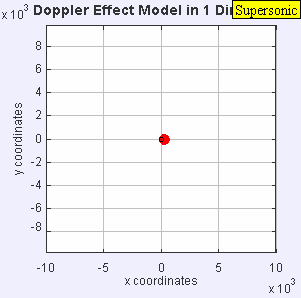
What Is The Speed Of Sound Wired

Sound The Science Of Waves How They Travel How We Use Them

Speed Of Sound Frequency And Wavelength Physics
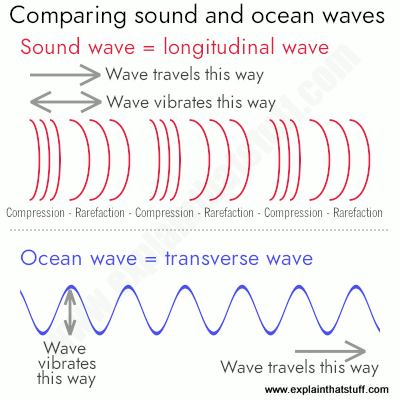
Sound The Science Of Waves How They Travel How We Use Them

Speed Of Sound Definition Formula Factors Affecting The Speed Of Sound And Faqs
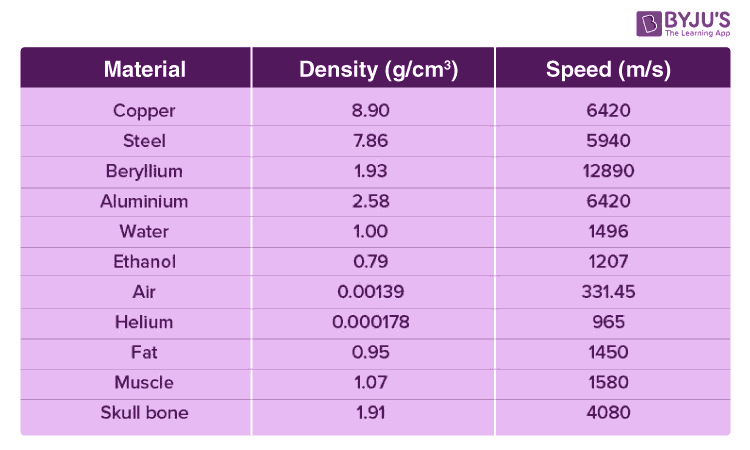
Speed Of Sound Definition Formula Factors Affecting The Speed Of Sound And Faqs

Speed Of Sound Video Sound Khan Academy

2a It Shows The Different Mediums When The Frequency Stays The Same But The Wavelength Changes Music Education Activities Learning Targets Music Education


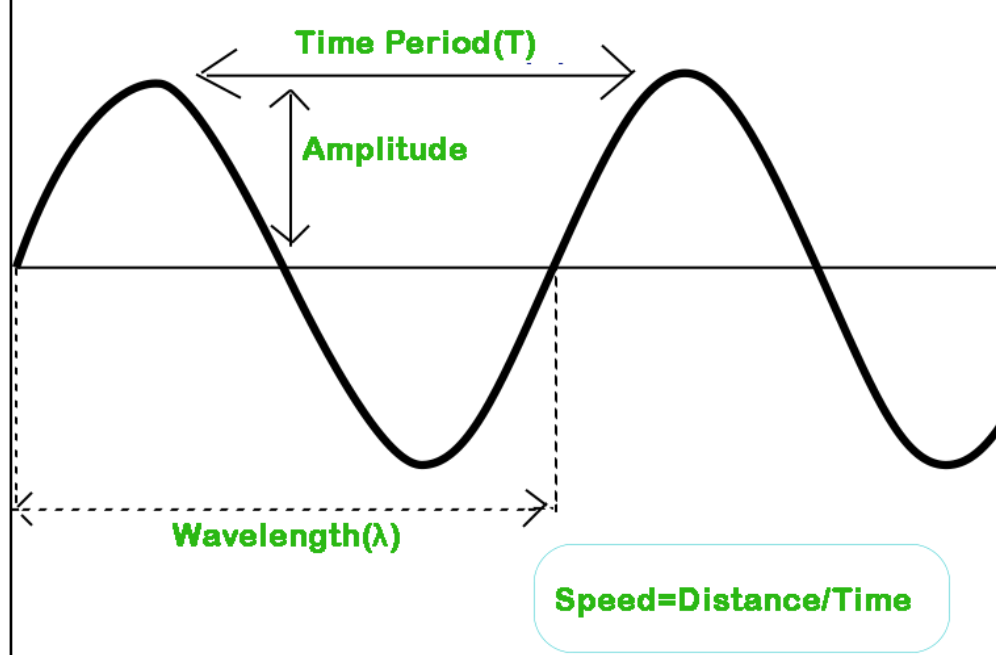
Comments
Post a Comment